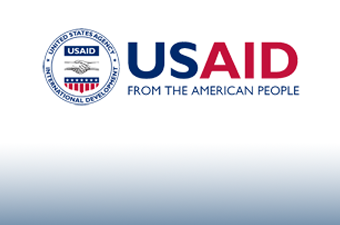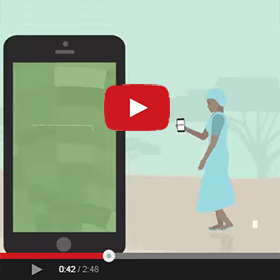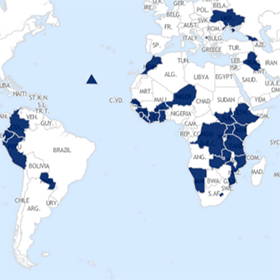By Frank Pichel, Land Tenure and Property Rights Specialist, USAID.
I was pleased to attend the June 2014 intersessional meeting of the Kimberley Process Certification Scheme (KPCS) in Shanghai, China and want to share several noteworthy achievements for USAID’s ongoing efforts to strengthen land tenure and property rights and prevent conflict.
Côte d’Ivoire was welcomed back into an active role in the Kimberley Process (KP) after the United Nations lifted its nine-year-old ban on Ivorian diamond exports in April. Lifting the export ban was largely due to the Government of Côte d’Ivoire’s efforts to improve its legal and regulatory framework to comply with the KPCS. Members of the KP recognized the key role of USAID’s Property Rights and Artisanal Diamond Development (PRADD) project in this major achievement. The PRADD project, which is co-funded in Côte d’Ivoire by the European Union, has worked with the Government of Côte d’Ivoire to strengthen its diamond systems by developing procedures for production and sales tracking, enacting new customs and mining regulations, and registering thousands of miners. The project is a model for increasing legal diamond exports while improving the livelihoods of artisanal diamond mining communities.
Another important development was that the United States Government was granted observer status in the KP Working Group on Artisanal and Alluvial Production (WGAAP), which has emerged as an important mechanism for promoting economic security, formal regulation and sustainable development to increase the number of alluvial rough diamonds entering legitimate chains of custody. In 2012, USAID worked with the WGAAP to develop the Washington Declaration, which formally incorporates development objectives into the KP. Many of the Washington Declaration’s policy recommendations – from strengthening artisanal miners’ property rights to expanding access to mining inputs – are derived from lessons learned under the PRADD program (which also operates in Guinea and previously operated in Liberia and the Central African Republic).
A final noteworthy development was the KP Chair’s endorsement of a regional approach for four West African countries – Côte d’Ivoire, Guinea, Liberia and Sierra Leone – to comply with the KP. The objective of the regional approach is to help participating countries better coordinate to improve internal controls, mitigate smuggling vulnerabilities, and harmonize efforts to prevent the trafficking of conflict diamonds. Read more about how the PRADD project will support this regional approach in Côte d’Ivoire and Guinea.
Read more about the PRADD project in Côte d’Ivoire and Guinea.




